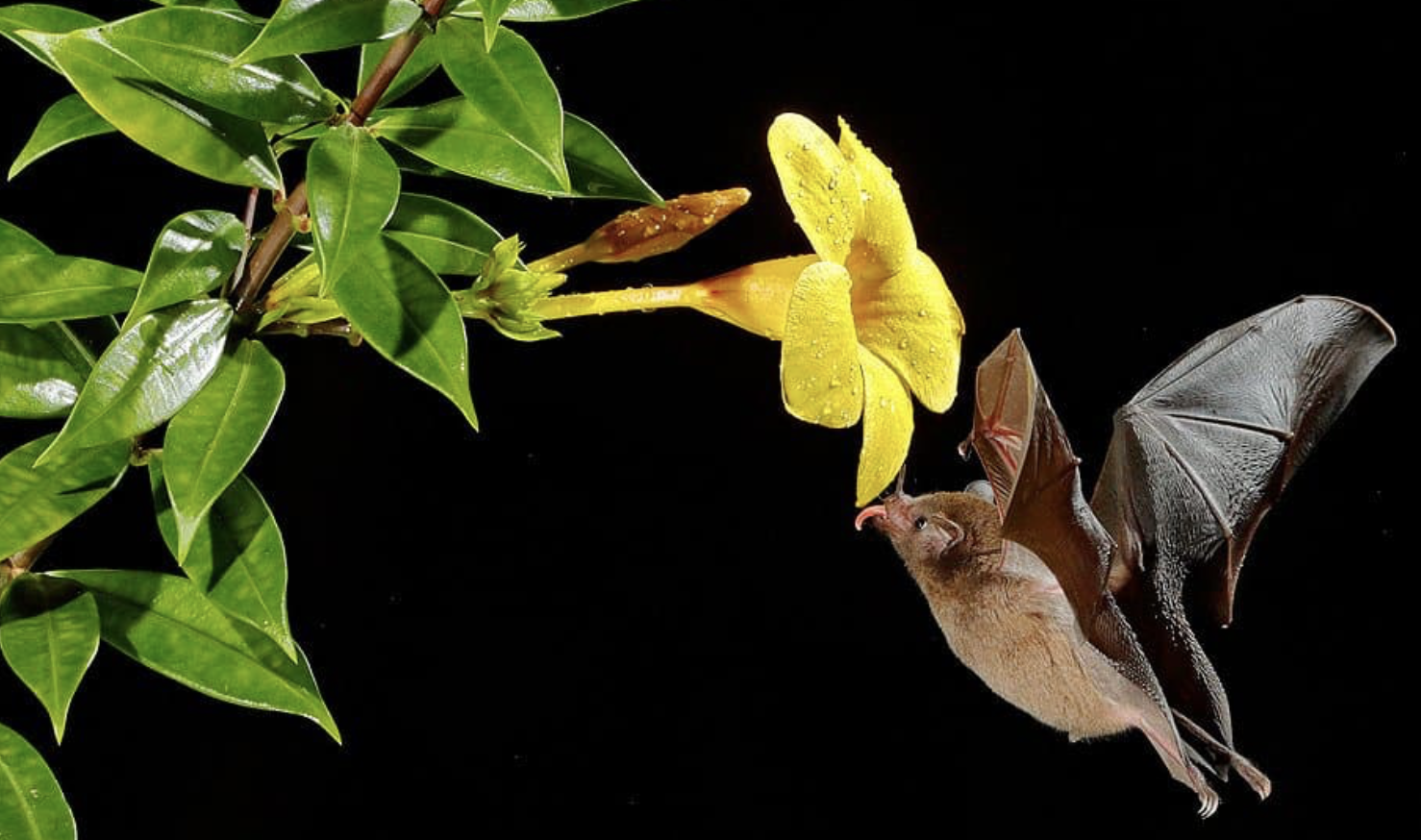The benefits of bats in the garden
Unlike our friends with feathers, bats generally get a bad rap. But that's unwarranted because there are very few vampire bats (and none in the UK), and bats do not attack humans. In fact, we should be encouraging these shy little creatures because they bring many benefits to our gardens

Bats that live in the UK are voracious eaters of insects, with no interest at all in drinking anyone's blood. So plant species that encourage insects and you'll be attracting bats too. Plants to grow include wallflowers, Sweet William, evening primrose, Michaelmas daisies and cornflowers
Bats can serve as pollinators
This is more true for other countries than the UK, but in some parts of the world, bats are pollinators for key species, just as bees are. And if bats disappear, the species that rely on their pollination services are also at risk. On the other hand, this is why planting species that bats rely on is crucial to their return.
They control insects
Mosquitoes are a major annoyance, so rejoice that a bat will munch up to 600 mosquites an hour. Indeed a bat is likely to eat a third or so of its body weight in mosquitoes and other pests every night. They also eat moths and plenty of pests, for example, some bats will eat cucumber beetles, earworms, and stink bugs. The most common bats in the UK love beetles and they're partial to grasshoppers, too.
Encouraging bats to live in your garden means that you don't have to use noxious pesticides on your plants, and you won't have to bother with bug zappers or netting - one bat will eat more pests in an hour than a bug zapper would kill in a day. Just build some bat houses or leave the bats in your old shed alone, and you'll enjoy natural, organic pest control.
Bats give us great fertilizer
We've mentioned how much bats eat, so conversely they excrete quite a bit too and their guano is great fertilizer. This is, of course, assuming they aren't eating insects laden with pesticides, as they will eventually be poisoned too and die. That's why pesticide use along with habitat loss are the two key reasons why bat populations are declining.
Bats are a bellwether of the state of the environment
Bats moving into an area are a sign of an improving ecosystem, one that is healthy. This is because bats can't survive in monoculture environments or in areas that are so heavily developed that there is nothing for them to eat. Some bat species can only survive in relatively untouched woods. For example, rarer species only nest in old-growth forests and navigate by the sound reflecting off gnarled trees. So it's important we don't fell trees or strip them of their bark because this hurts our bats.
The UK government wants to make progress toward restoring our natural ecosystems. This is why the biodiversity net gain will become a mandatory consideration for all future development in the country. This will affect how authorities make decisions and may result in plans being rejected, even if they're for a net-zero carbon emissions project.
What is biodiversity net gain?
Any project must measurably increase the biodiversity in or near the site. This means that you could build a house, but a new subdivision must result in ecological restoration to offset the loss of habitat. Brownfield site developments are generally exempt since you're improving the environment just by cleaning it up. There are already areas in England using a 10 per cent biodiversity net gain requirement for all new developments. Practical ways to achieve this include replacing lawns with gardens full of native plant species and expanding nearby wetlands when you put up a new building. You should ask for an assessment to be done now so that you can plan for it.